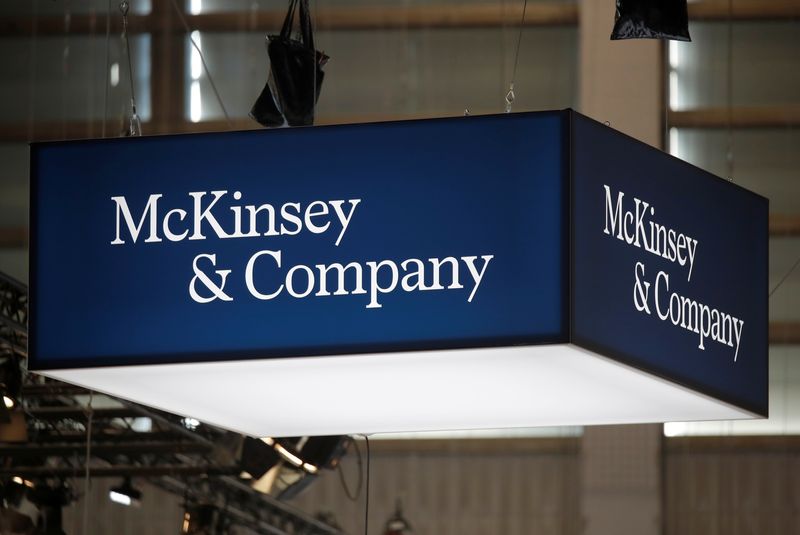By Nate Raymond
(Reuters) – The U.S. Supreme Court on Tuesday declined to hear McKinsey & Co’s bid to escape a lawsuit by retired turnaround specialist Jay Alix accusing the management consulting firm of concealing potential conflicts when seeking permission from bankruptcy courts to perform lucrative work on corporate restructurings.
The justices turned away McKinsey’s request that they overturn a lower court’s decision that the lawsuit by Alix, who has accused the firm of running a “criminal enterprise” by hiding its ties to lenders and its clients’ competitors.
Alix’s lawsuit accused McKinsey and several current or former employees of violating the Racketeer Influenced and Corrupt Organizations Act (RICO), a U.S. law used to target illegal conspiracies that originally was designed to target organized crime.
Alix, who has battled McKinsey in multiple courtrooms since 2016, sought triple damages under RICO, which lets people sue if they believe criminal enterprises caused them harm.
U.S. District Judge Jesse Furman in Manhattan in 2019 dismissed the lawsuit, saying Alix did not assert a “proximate” link between McKinsey’s alleged wrongdoing and harm to AlixPartners. Alix reported owning a 35% equity stake in AlixPartners.
The New York-based 2nd U.S. Circuit Court of Appeals in January revived the case, saying Furman gave “insufficient consideration” to whether McKinsey undermined the integrity of federal judicial proceedings.
“If McKinsey’s conduct has corrupted the process of engaging bankruptcy advisors, as Alix plausibly alleges, then the unsuccessful participants in that process are directly harmed,” 2nd Circuit Judge Barrington Parker wrote.
McKinsey in its petition to the Supreme Court argued that the 2nd Circuit’s decision ran contrary to past rulings by the high court holding that RICO lawsuits may be brought only by plaintiffs injured “directly” by wrongdoing.
The firm urged the Supreme Court to consider whether lower courts must follow that standard “even if, in the court’s judgment, the plaintiff’s allegations implicate the court’s ‘supervisory responsibilities'” over judicial proceedings.
(Reporting by Nate Raymond in Boston; Editing by Will Dunham)
